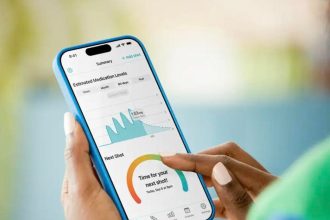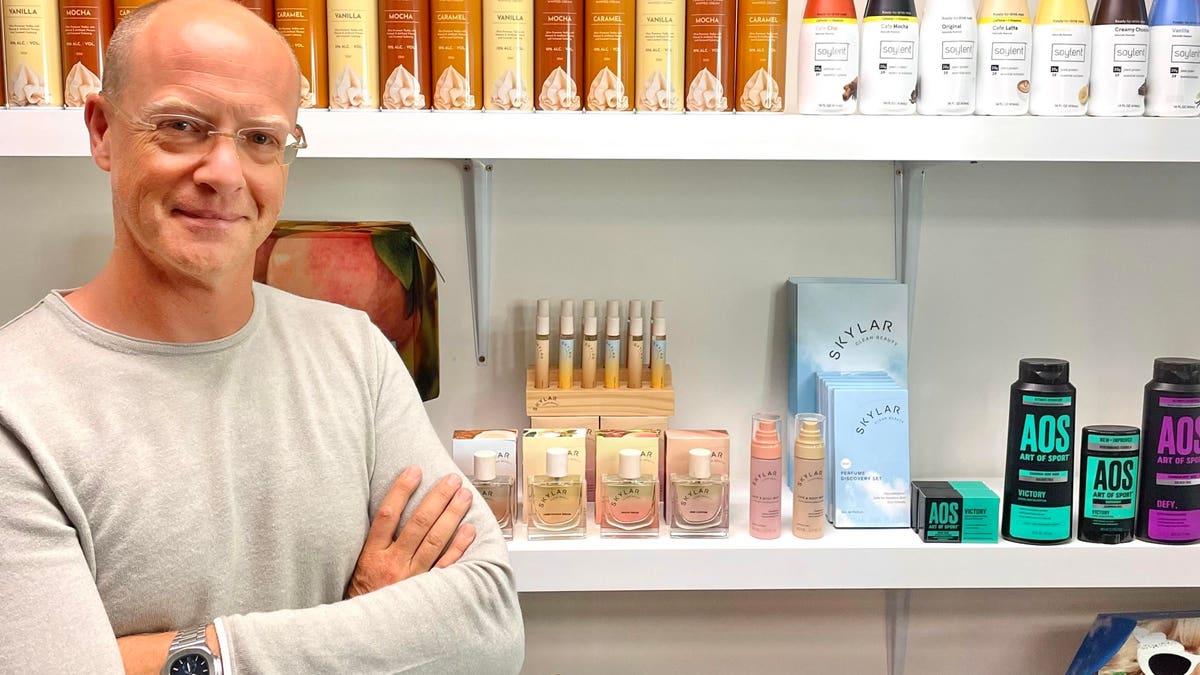How do you build a multi-million-dollar business from scratch? For Ross Sklar, who has done exactly that with Starco Brands since launching the company in its current guise four years ago, the answer might be summarised as play to your strengths. Entrepreneur Sklar has expanded Starco through a combination of careful management and strategic acquisitions, largely eschewing day-to-day involvement in operational affairs in favour of driving collaboration and making smart appointments.
“My skills lie in getting deals done and in bringing people together,” explains Sklar. “If you can recruit the best talent to run your businesses, you’ve got a real chance of making it work.”
It’s an approach that has seen Starco make three significant acquisitions since Forbes first met the company, a little under two years ago. First, in September 2022, it acquired Art of Sport, a personal care business aimed at athletes and sports players co-founded by the basketball star Kobe Bryant. That was followed in January by the acquisition of Skylar, which produces a range of hypoallergenic fragrances, and then in February with a deal to acquire Soylent, a company that manufactures plant-based drinks.
With the global economy stuttering and businesses everywhere still suffering from the after effects of the Covid-19 pandemic, this period might not have been an obvious time to launch an M&A spree. Indeed, globally, M&A deal volumes have fallen off a cliff over the past year.
However, Sklar believes that is exactly the time to pursue new opportunities. “I’ve always thought that distressed times can be the moment to make your move,” he argues. “If you sit back and lick your wounds, you almost always discover that you’ve missed an opportunity.”
Each of the Starco acquisitions provides an example of that. First, with Art of Sport, Sklar had been a fan of the business well before the tragic death of Bryant in 2020 but noted its subsequent struggles in the face of Covid-19. “We started to talk to the management about how we could help,” Sklar explains. “What we saw was a business with a huge opportunity to play in so many different segments, because it wasn’t simply a sports and leisure brand.”
The company’s existing range of body and skincare products, designed specifically with athletes in mind, has had some traction, Sklar points out, but he also sees potential to expand into areas such as sports drinks, supplements and similar products. The sport drinks market alone is growing at a rate of 4.8% a year according to research from Allied Market Research and could be worth as much as $22 billion globally by 2031.
At Skylar, meanwhile, Sklar was excited by a business that had been “developed by a great founder with huge vision”. Skylar had developed the first mass-market hypo-allergenic range of prestige fragrances, targeting a younger customer base prepared to try different fragrances and to sign up to subscription deals. But it had been run for scale rather than for profit. “The products were unique,” Sklar says.
Again, it’s a huge market with untapped potential. Products for sensitive skin racked up sales of more than $40 billion last year according to Grand View Research, with the market set to grow at a rate of almost 9% a year. Yet few businesses have identified fragrances as a potentially valuable subset of that marketplace.
As for acquisition number three, Soylent taps into huge demand from customers concerned about their health and wellbeing, which continues to grow in the wake of the pandemic. Products such as Soylent’s drinks are bought by customers focused on tracking the nutritional benefits of what they consume, but more broadly there is growing interest in drinks as potential meal replacements. Statista forecasts that the value of plant-based nutrition market could grow from around $29 billion in 2020 to as much as $162 billion by 2030. “There is also an opportunity to make nutrition accessible to everyone,” says Sklar, who points out that cash-strapped families could also find the product useful as they seek to eat healthily.
Sklar’s focus now is to strengthen the businesses acquired by enabling them to tap into the broader group’s expertise and experience. Soylent, for example, could benefit from Starco’s track record in experiential marketing – it has worked closely with music star Cardi B to build a brand for its Whipshots business, which sells vodka-infused whipped cream. All three businesses are tapping into some sort of behavioural change in broader society, Sklar points out, so that creates opportunities for idea sharing and innovation too.
Across Starco Brands as a whole, revenues have now grown to around $70 million a year. The company is listed on the OTC market, the decentralised stock market through which investors can buy and sell stocks in early-stage and developing companies. That has been important, in that it has enabled Starco to grow partly through financing deals with its own stock.
“This is the value-building stage for the business,” reflects Sklar. “Are we looking to the senior exchanges such as Nasdaq or New York? Yes, but we don’t feel any pressure and we’ll do it on our timescale.” In the meantime, private equity and venture capital investors in the sort of businesses that Starco is targeting have an opportunity to take a stake in the company when selling out of their own portfolio holdings. Andreessen Horowitz, GV, Upfront Ventures and Lightspeed Partners have all become Starco shareholders in this way.
Entrepreneurs have to be patient, picking their opportunities carefully, Sklar insists. It’s something he learned while building the Starco Group, which over the past 20 years has assembled a string of consumer products businesses, either through organic innovation or acquisition. The realisation that Starco wasn’t capturing the full value of its intellectual property led to the launch of Starco Brands, and now Sklar hopes he’s on his way to closing that gap.
Read the full article here





